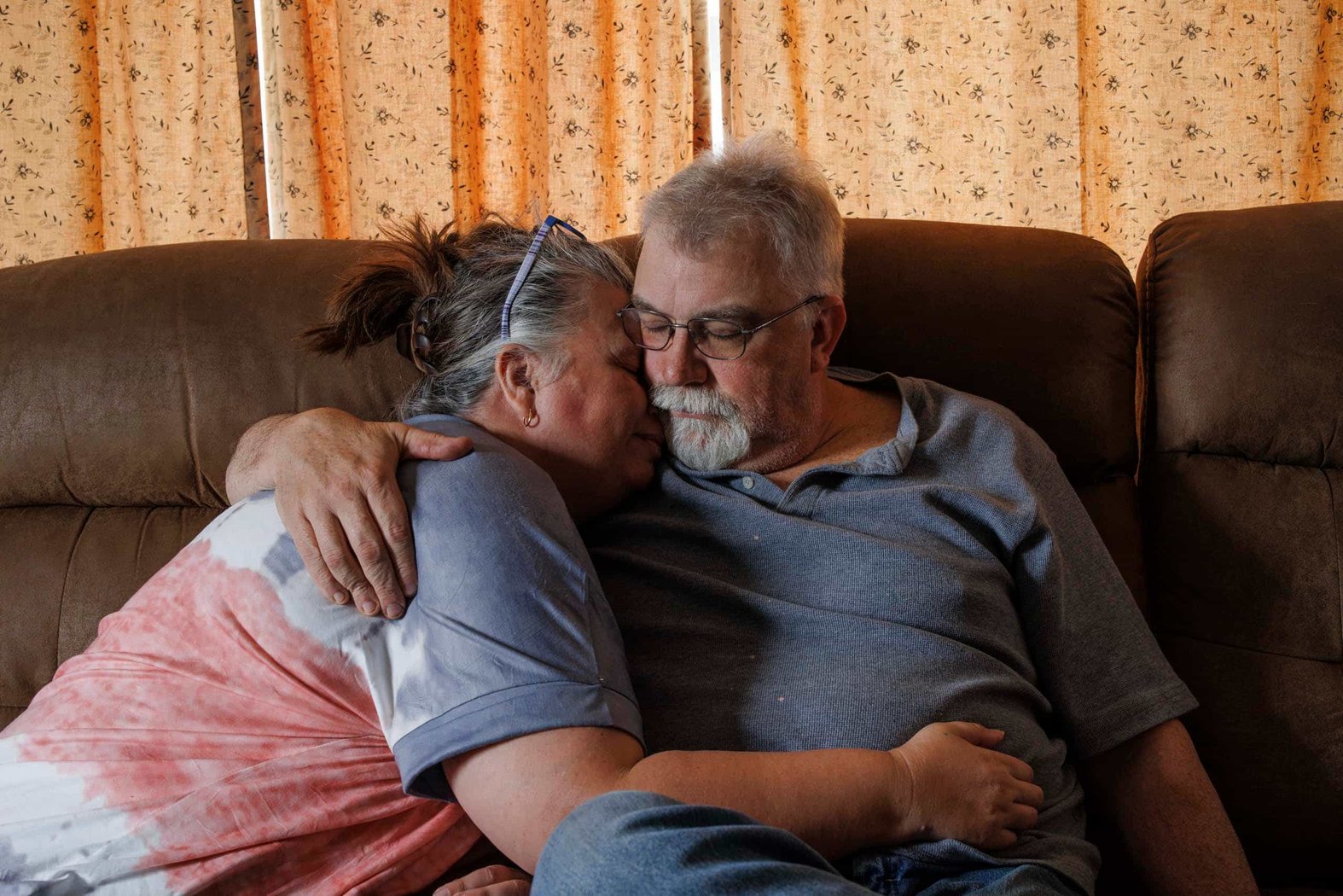
June 7, 2022.
Abby Tennant woke in the dead of the night. Sharp pain pierced her chest, and she felt the urge to vomit.
She roused her husband, Scott, and their 11-year-old daughter, Piper. She stepped out onto the porch and she could smell it: That familiar burnt chemical scent, like a perm solution in the distance, hanging heavy in the air.
Piper said she could smell it in the living room. Scott, a coal miner and veteran U.S. Marine, said he had a metallic, acid taste in the sides of his mouth.
The family hurried to their Jeep and left Knob Fork, heading west up Mountaineer Highway. Abby’s head and arms ached. As Scott drove, she journaled.
This article was supported by the Pulitzer Center. It was originally published by PublicSource, a nonprofit newsroom serving the Pittsburgh region. Sign up for its free weekly newsletters at publicsource.org.
“My head is killing me and my muscles, specifically my arms, are killing me. Like the poisons are still going through my system,” Abby wrote.
As the Tennants crested the hill above their home, they passed EQT’s compressor station, one of four the company operated in West Virginia. There, six 1,775-horsepower engines pressurize the fracked gasses piped from nearby wells, including from the Sizemore Pad, a nine-bore well pad at the bottom of the hollow. Hidden behind a bend, four 50,000-gallon open-top tanks hold the briney, toxic liquids left over from shale gas extraction.
Abby wrote that the pain and nausea worsened until they passed the 4-H camp in New Martinsville, more than 20 miles away. From town, Abby called her neighbor Trina Hollabaugh to tell her to leave her house, but she was already at her cabin, miles from home, and she invited the Tennants to join her. They arrived at the cabin at 3:15 a.m. and spent the night.
When Piper woke up, she was short of breath. Bright red rashes stretched across her chest, stomach, back and arms. Abby had the rashes and trouble breathing, too, she wrote. Her muscles twitched. Her hands, lips and eyes burned. The Tennants went home at 2 p.m., exhausted.
Piper, who was often lethargic and had begun sleeping for unusually long periods of time, woke up the next afternoon with her chest hurting and ears ringing. She was dizzy and nauseous. Abby felt the same. Her palms felt “on fire,” she scribbled in her notes. And the “bee stings” were back — sharp phantom pricks that plagued her whenever she was at home.
The Tennants fled their home again the following night when the pain in Piper’s chest worsened, as they did at least 50 times between January and July 2022, as chronicled in Abby’s journals. Those trips were a prelude to the family leaving the home where Scott grew up and he and Abby raised three daughters over 30 years.
“Our home is no longer a home. It is a place of sickness, confusion and sadness,” Abby wrote.
Since Pittsburgh-based EQT expanded its presence in Knob Fork, four neighboring families have abandoned homes. Members report respiratory, cardiovascular and neurological symptoms and have documented their observations in repeated complaints to the West Virginia Department of Environmental Protection [WVDEP] and the U.S. Environmental Protection Agency [EPA].
The tiny village’s travails come as EQT is expanding its presence in the Mountain State, following the August acquisition — for $5.2 billion in cash and stock — of the gas producer Tug Hill, dramatically increasing the company’s Appalachian footprint. The Tug Hill buy is part of EQT’s bid to lead, as the company puts it, "the largest green initiative on the planet."
To keep reading this story—and we highly recommend you do!—head to Public Source.
Here at Drilled we are hard at work on several stories about how various industry groups, companies and individuals have pushed to lock in dependency on methane gas. Check back here soon for that series!
Top photo caption & credit: Abby and Scott Tennant embrace at the house where the family relocated in Paden City, West Virginia, after experiencing illnesses when EQT expanded operations in the hollow they called home. (Photo by Quinn Glabicki/PublicSource)






